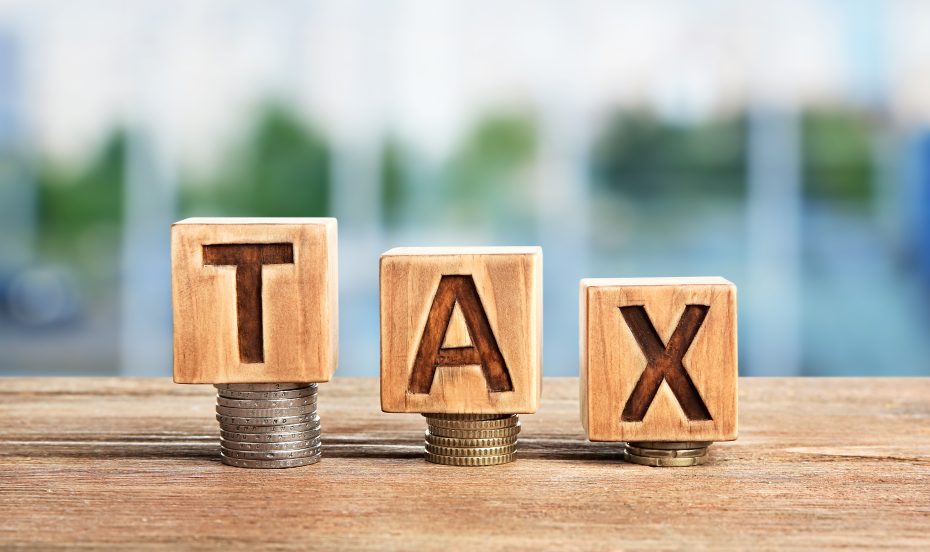Vietnam's Tax System for Foreign Workers: What You Need to Understand
Vietnam's Tax System for Foreign Workers: What You Need to Understand
May 3, 2024
Last updated on May 14, 2024
Foreign workers in Vietnam are subject to specific tax regulations. Understanding the rules of tax in Vietnam for foreigners is crucial for both individuals and the companies that employ them. The main taxes foreign workers in Vietnam typically encounter are Personal Income Tax (PIT) and, in certain situations, Value-Added Tax (VAT).

Vietnam offers exciting opportunities for foreign workers, but navigating its tax system can present challenges. It’s essential to familiarize yourself with the tax obligations that apply to your foreign employees, whether they are long-term expatriates or short-term consultants. By understanding Vietnam’s tax system for foreign workers, you can provide valuable support to your expatriate staff, ensure compliance with local regulations, and help create a smooth working experience for your foreign talent in Vietnam. This guide aims to simplify tax in Vietnam for foreigners, ensuring you and your company achieve compliance.
Tax for resident foreign workers
Managing foreign workers in Vietnam must have a solid understanding of the country’s tax system to ensure payroll compliance and avoid potential liabilities. This guide focuses on tax regulations for resident foreign workers, who meet either of the following criteria:
- Resides in Vietnam for 183 days or more within a calendar year or 12 consecutive months from the date of arrival.
- Has a permanent residence in Vietnam (e.g., registered address, leased house, office location).
Personal income
Resident foreign workers are subject to Personal Income Tax (PIT) on their worldwide income – earnings within Vietnam and abroad. This includes income from employment, business, investment, capital transfer, real estate transfer, lottery winnings, inheritance, gifts, and more.
Resident foreign workers are subject to family deductions to reduce their taxable income. These deductions apply to the worker and dependents (spouse and children) living with them in Vietnam. Deductions begin the month the worker gains residency status and end the month residency ceases. Adjustments occur if dependents join or leave during the year.

Tax calculation for resident foreign workers
Calculate PIT for resident foreign workers using this formula:
Personal income tax payable = Tax rate x Taxable income
- Taxable income: Income after family deductions and other permissible expenses (social/health insurance, charitable donations). Components vary based on income type and source.
- Progressive tax rates: Vietnam’s system means tax rates increase as income rises. The 2024 Vietnam tax rate for foreigners is:
| Taxable income per year (VND) | Tax rate (%) |
| Up to 60 million | 5 |
| Over 60 million to 120 million | 10 |
| Over 120 million to 216 million | 15 |
| Over 216 million | 20 |
| Over 288 million | 25 |
| Over 360 million | 30 |
| Over 520 million | 35 |
Tax responsibilities for non-resident foreign workers
Non-resident individuals are defined as foreign workers who do not meet the criteria to be considered tax residents in Vietnam. Primarily, this means they:
- Are present in Vietnam for less than 183 days in a tax year or 12 consecutive months.
- Do not have a permanent residence in Vietnam.
Tax responsibilities for non-resident foreign workers
Non-resident foreigners are subject to tax on their income earned in Vietnam. However, they are not eligible for family deductions, which are available to resident taxpayers. The taxable income for non-resident individuals consists of their salaries and wages earned within Vietnam’s borders. Unlike resident taxpayers who are subject to progressive tax rates, non-resident individuals are taxed at a fixed rate of 20% on their taxable income.
Calculating tax for non-resident workers
Non-resident foreign workers face a flat PIT rate of 20% applied to their Vietnam-sourced income. The calculation of PIT for non-resident workers is straightforward:
Personal income tax payable = 20% x income
Their taxable income is calculated directly from their gross salary and wages – no deductions for social insurance or other expenses are applicable. The tax year for non-residents follows the calendar year (January 1 – December 31).
Special considerations apply when a non-resident worker performs work both inside and outside Vietnam. Here’s the breakdown:
- If a non-resident worker is employed by a Vietnamese entity, all income received from that employer is subject to Vietnamese PIT, regardless of where the work is actually performed. This simplifies calculations for HR teams.
- If the non-resident is employed by a foreign entity, only the portion of income directly related to workdays physically spent within Vietnam is subject to PIT. This requires careful calculation: divide the number of days spent working in Vietnam by the total number of workdays in the tax year, then apply that percentage to the worker’s total salary to determine the taxable portion.

Exclusions from taxable income
Not all income and benefits that you receive as a foreign worker in Vietnam are subject to PIT. Some types of income and benefits are excluded from taxable income, meaning that you do not have to pay tax on them or report them in your tax declaration. These include:
- Employer-purchased insurance: Premiums paid by the employer for health, life, or accident insurance on behalf of the foreign worker are generally excluded from taxable income. However, important exceptions exist: any compensation or benefits received by the worker directly from the insurance policy (e.g., medical reimbursement) are taxable.
- Medical support: When the employer provides free or subsidized medical care (examinations, treatments), the value of this support is typically non-taxable. This could include on-site company medical facilities or coverage at third-party clinics. Cash allowances for medical expenses, however, are treated as taxable salary income.
- Meals: Mid-shift meals and lunches provided by the employer are often non-taxable, whether served in a company canteen or an external location. Cash allowances for meals are considered taxable salary income.
- Tickets and tuition: In some cases, employer-paid round-trip air tickets for a foreign worker’s home visits, or tuition fees for children studying in Vietnam, may be excluded. Specific limits and conditions often apply.
These exclusions from taxable income are applicable to both resident and non-resident foreign workers, as long as they meet the conditions and requirements specified by the tax authorities. When advising your expatriate employees on tax finalization, it’s important to consider the potential impact of DTAs. These agreements are designed to prevent double taxation and fiscal evasion, and their provisions may supersede certain aspects of Vietnam’s domestic tax laws, including some of the exclusions from taxable income.
By collaborating with tax professionals and services, you can ensure that you provide accurate and up-to-date information to your expatriate staff about their tax obligations and the availability of exclusions. This support can help your foreign workers make informed decisions and remain compliant with both Vietnamese and international tax laws.
Vietnam’s tax system for foreign workers has unique aspects, including residency rules and deductions. To support your foreign workers effectively, it’s essential to stay informed about their taxes in Vietnam for foreigners, help them keep accurate records, and provide access to professional advice when needed. By assisting your expatriate staff in fulfilling their tax responsibilities, you can help them focus on their professional goals and contribute to your organization’s success in Vietnam.

Solve your HR problems!
6th Floor, Star Building, 33 Mac Dinh Chi, Saigon Ward, Ho Chi Minh city, Vietnam



